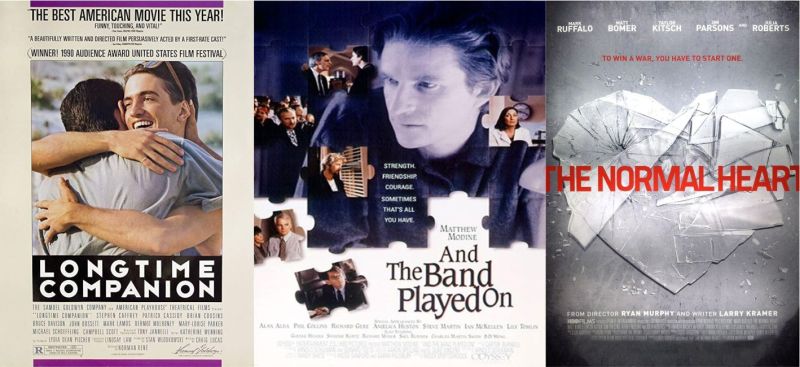Know about five films which speak about the AIDS crisis

- Christopher Rodrigues
- 05 Dec, 2023
These five films portray the subject in an honest and authentic manner
The AIDS (Acquired Immunodeficiency Syndrome) crisis refers to the global outbreak of a severe epidemic caused by the Human Immunodeficiency Virus (HIV). The crisis emerged in the late 20th century, particularly in the early 1980s, and it had a profound impact on public health, society, and culture.
The discovery of HIV in the early 1980s marked the identification of the virus responsible for weakening the immune system, particularly CD4 cells (T cells), and compromising the body’s ability to combat infections and diseases.
Initially identified in specific populations, such as gay men in the United States, AIDS quickly transcended demographic boundaries, affecting millions worldwide. The early years of the crisis were characterised by significant stigma and discrimination against individuals with HIV/AIDS. Misinformation and fear fuelled social prejudice, hindering those affected from seeking support and medical care.
The AIDS crisis prompted significant medical and scientific challenges as researchers worked to understand the virus and develop effective treatments
While significant strides have been made in understanding, treating, and preventing HIV/AIDS, the crisis has had a lasting impact. Ongoing efforts are directed towards eliminating stigma, increasing access to treatment, and ultimately finding a cure for the virus.
The AIDS crisis has been depicted in various films that strive to portray the struggles and realities associated with the epidemic.
Here are five films that approach the topic honesty and authentically:
Philadelphia (1993):
Synopsis: Directed by Jonathan Demme, “Philadelphia” stars Tom Hanks as Andrew Beckett, a lawyer who is fired from his firm due to his HIV-positive status. Denzel Washington plays the attorney who helps Beckett in his discrimination lawsuit.
Impact: “Philadelphia” was one of the first mainstream Hollywood films to address HIV/AIDS and homosexuality. Tom Hanks won an Academy Award for his powerful portrayal, bringing significant attention to the epidemic.
Dallas Buyers Club (2013):
Synopsis: Directed by Jean-Marc Vallée, the film is based on the true story of Ron Woodroof (Matthew McConaughey), a Texan diagnosed with AIDS who starts smuggling and distributing unapproved drugs to fellow patients.
Impact: Matthew McConaughey won an Oscar for his transformative performance, and the film sheds light on the early years of the AIDS epidemic and the struggles faced by those seeking alternative treatments.
Longtime Companion (1989):
Synopsis: Directed by Norman René, “Longtime Companion” follows a group of friends living in New York City during the early years of the AIDS epidemic. The film explores their experiences and losses over the course of several years.
Impact: One of the first films to address the AIDS crisis, “Longtime Companion” received critical acclaim for its emotional storytelling and was a landmark in representing the epidemic on screen.
And the Band Played On (1993):
Synopsis: Based on Randy Shilts’ non-fiction book, this HBO film directed by Roger Spottiswoode chronicles the early years of the AIDS epidemic and the scientific and political responses to the crisis.
Impact: The film provides a comprehensive look at the global response to AIDS and the challenges faced in understanding and addressing the disease. It underscores the social and political complexities surrounding the epidemic.
The Normal Heart (2014):
Synopsis: Directed by Ryan Murphy and based on Larry Kramer’s play, the film depicts the early days of the AIDS crisis in New York City and follows activist Ned Weeks (Mark Ruffalo) as he tries to raise awareness and fight for action.
Impact: “The Normal Heart” offers a powerful portrayal of the activism and frustration of those fighting against the epidemic. It received critical acclaim for its performances and emotional resonance.
These films provide diverse perspectives on the AIDS crisis, addressing social, political, and personal aspects of the epidemic with honesty and authenticity.





